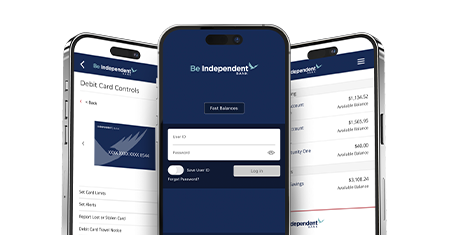Get More With a No-Fee Health Savings Account (HSA)
Save for healthcare on your terms with an Independent Bank Health Savings Account for qualified medical expenses.

Why Choose a Health Savings Account?
Tax-Free Spending
Save on taxes when you use your HSA for qualified medical expenses.*
No Fees Means No Fees
Our HSA account has no minimum balance and no monthly service fees.
Earn Interest
Free Debit Card
Health Savings Account FAQs
Answers to Common Questions About Health Savings Accounts
What is required to open an HSA?
You must be enrolled in a high-deductible health plan (HDHP) to qualify for an HSA. You’ll need a valid ID, Social Security Number/Tax Payer ID, proof of address, and an initial deposit if required
Are there annual contribution limits?
Yes. For 2025, individuals can contribute up to $4,300, and families up to $8,550. Additional catch-up contributions of $1,000 are available for those aged 55 or older.
What happens to unused funds?
Can I invest my HSA funds?
If your HSA balance is greater than $2,500, you can invest a portion of your HSA dollars into mutual funds through a brokerage account, call IB Wealth Management at 800.300.0459 for additional information.
What can I use HSA funds for?
HSA funds can be used for qualified medical expenses which may include doctor visits, prescriptions, and even certain over-the-counter items.

Pay Medical Bills Easily With ONE Wallet Bill Pay
*Consult your tax advisor for details.